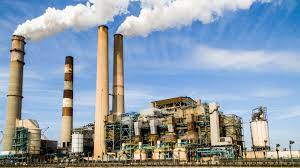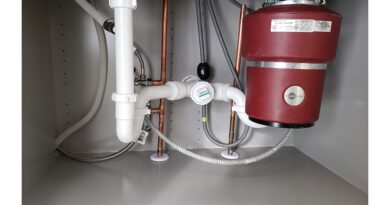The Meaning and Effects of Air Pollution
Air pollution is the release into the atmosphere of various gases, finely divided solids, or finely dispersed liquid aerosols at rates that exceed the natural capacity of the environment to dissipate and dilute or absorb them.
These substances may reach concentrations in the air that cause undesirable health, economic, or aesthetic effects. Air pollution is a familiar environmental health hazard.
We know what we‘re looking at when brown haze settles over a city, exhaust billows across a busy highway, or a plume rises from a smokestack. Some air pollution is not seen, but its pungent smell alerts you.
Effects of AirPollution
The following are the effects of air pollution;
1. Acidrain
When air pollution, specifically sulfur oxides and nitrogen oxides, are released into sky through fossil fuel burning, it creates the phenomenon known as acid rain.
Read Also : Overview of Current Global Pollution Concerns
Water, high in the atmosphere, combines with these chemicals and becomes acidic in nature. It then scatters the ground, disguised as normal rainfall. Acid rain has been known to cause harm to humans and animals alike, and even damage crops.
2. Increased global warming
Air pollution directly accelerates the rate at which global warming happens by depleting the Ozone layer. Global warming refers to the increased temperatures Earth continues to experience.
These higher temperatures lead to the melting of the polar ice caps and icebergs, which elevates sea levels and creates concern for the human race.
3. Health challenges
Air pollution is known to cause irritation in the eyes, lungs, nose, and throat. It creates respiratory problems and exacerbates existing conditions such as asthma and emphysema.
When continually exposed to air pollution, humans become at higher risk for cardiovascular disease. Air filled with toxins can have a number of adverse effects on the arteries, and have even been a contributor to heart attacks.
Globally, 3.7 million deaths were attributable to ambient air pollution (AAP) in 2012. About 88% of these deaths occur in low- and middle-income (LMI) countries, which represent 82% of the world population.

The Western Pacific and South East Asian regions bear most of the burden with 1.67 million and 936,000 deaths, respectively. About 236,000 deaths occur in the Eastern Mediterranean region, 200,000 in Europe, 176,000 in Africa, and 58,000 in the Americas.
The remaining deaths occur in high-income countries of Europe (280,000), Americas (94,000), Western Pacific (67,000), and Eastern Mediterranean (14,000).
4. Wild life endangerment
Most diseases and conditions that humans are susceptible to, animals are as well. Air pollution creates many of the same issues that humans face.
Read ALso : Meaning and Sources of Noise Pollution
Heavily polluted areas force inhabitants to seek new homes, which can negatively impact the ecosystem. Toxic chemicals also deposit over surfaces of water that can lead to the endangerment of marine life animals.



